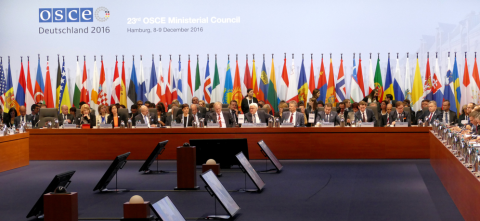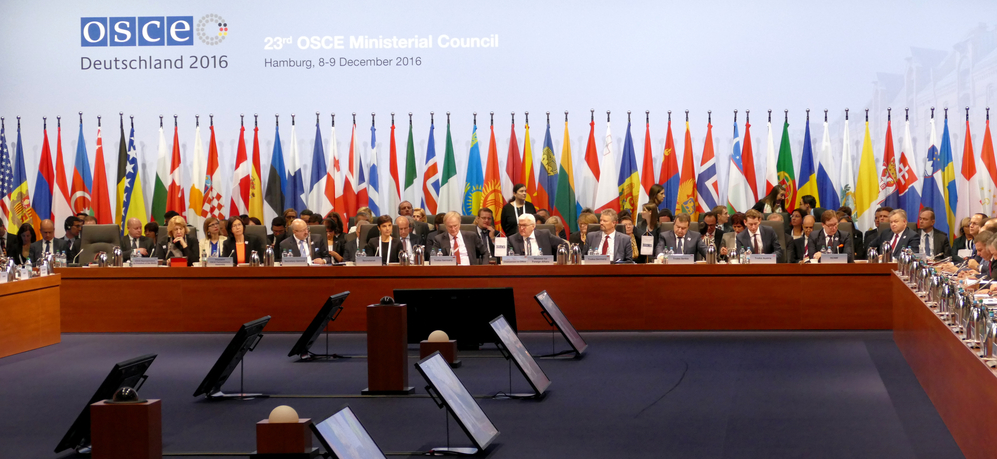
Practical information
Themes and regions
Related centers and programs
This is a private event.
Learn more about our corporate support packages
The Organization for Security and Co-operation (OSCE) used to carry the promise of a paneuropean security order. It is the only Euroatlantic security organization in which the “West” and Russia can cooperate on an equal footing.
Notably since the outbreak of the Ukraine conflict, hopes have been high that the organization may serve as a platform for conflict resolution and dialogue. Realities within the OSCE prove, however, more difficult to handle. Political divides make cooperation difficult, as becomes obvious in a number of areas ranging from budget matters to the OSCE’s presence in the field.
What are the key issues currently debated, and where do dividing lines run?
In cooperation with the OSCE Network of Think Tanks and Academic Institutions these questions will be discussed in a circle of invited guests and specialists.
Speakers
William H. Hill, Former Head of the OSCE Mission to Moldova, and former Professor of National Security Strategy at the National War College in Washington DC
Andrei Zagorski, Head of the IMEMO Department of Arms Control and Conflict Resolution Studies, and Professor of International Relations at the Moscow State Institute of International Relations
Moderator: Barbara Kunz, Research Fellow, French Institute for International Relations, ifri
This conference will be held in English. Invitation only.
Speakers
Related Subjects
Other events

EV Supply Chains for Japan and Europe: Strengthening Economic Security
Economic security aims to ensure the resilience of supply chains for key industries: the case of electric vehicle production in Japan and Europe will be discussed.

From Ambition to Action: Exploring Technological Partnerships with India
The 16th EU-India Summit, held on January 27th in New Delhi with European leaders António Costa, Ursula von der Leyen, and Prime Minister Narendra Modi, marks a significant milestone in deepening EU-India relations. At the same time, official bilateral visits from EU member states are on the rise, including that of the French President, who visited India in February to participate in the Artificial Intelligence Summit. As India asserts its technological ambitions and seeks to reduce its dependence on China, Europe is stepping up its efforts to diversify its strategic partnerships.








